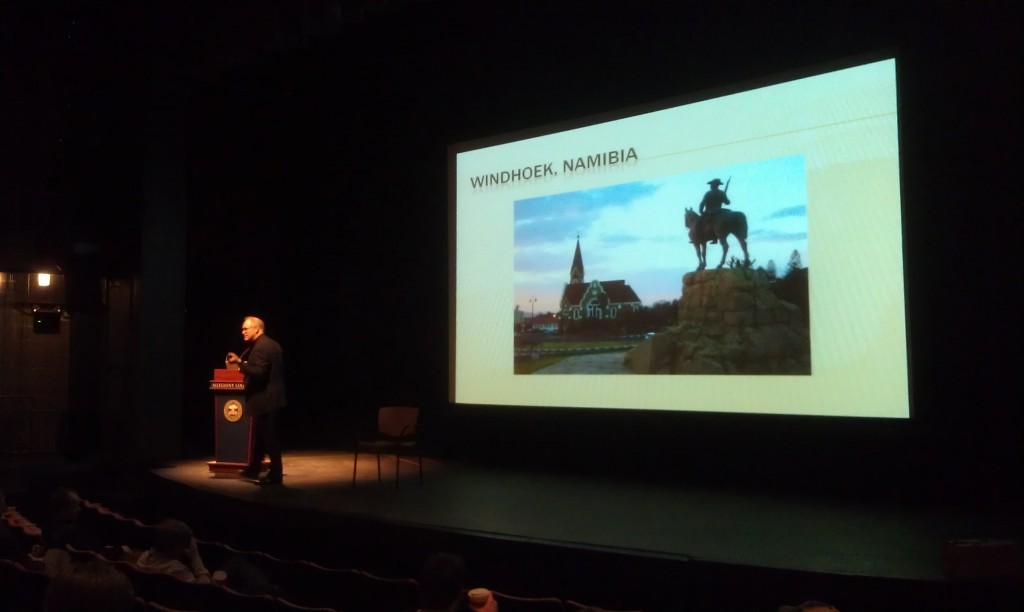
Allegheny College’s LITS team hosted GLCA-IT 2013, the annual meeting of computing professionals from GLCA schools, March 18-20. For two days, 39 technologists gathered for formal and informal sessions related to supporting technology at a liberal arts college. This year’s theme was collaboration, focusing on building conversations between staff, faculty, and students of Allegheny and other GLCA schools. Attendees found the conference a good place to exchange ideas and encourage innovative competition.
James Fadden, a member of Allegheny’s User Services group, believes that collaborative business practices are the future for the technological world.
“At the conference, it was reassuring to know we are on the right track. Compared to other GLCA schools, we are leaders in the game,” Fadden said.
Several Allegheny community members facilitated conference sessions: “Adventures in Introducing Project Management/Process Improvement,” Christine Rick; “Building Collaboration Across Communities: Perspectives from the Front,” Amelia Carr and Helen McCullough; “Collaborative Support for Effective Administrative Decisions,” P. Todd Fox and Jason Ramsey; “Implementing a Print Management System,” James Fadden, Fernando Hernandez, and Jodi Millin. Discussion sessions to open and close the conference were facilitated by Rick Holmgren. James Fadden, Michael Hurley, Helen McCullough, Rich Metzger, Jason Ramsey, and Christine Rick served as the conference planning committee.
Source: Academics, Publications & Research

